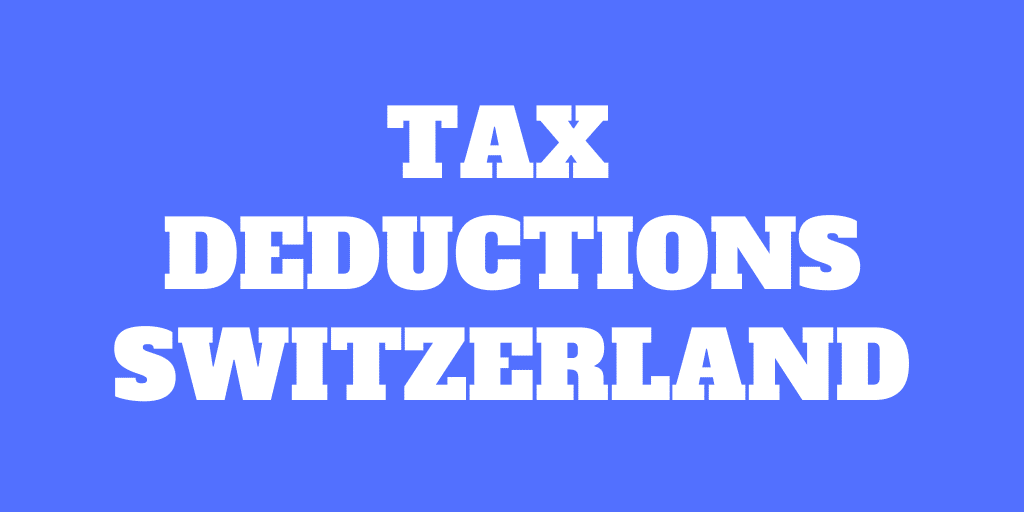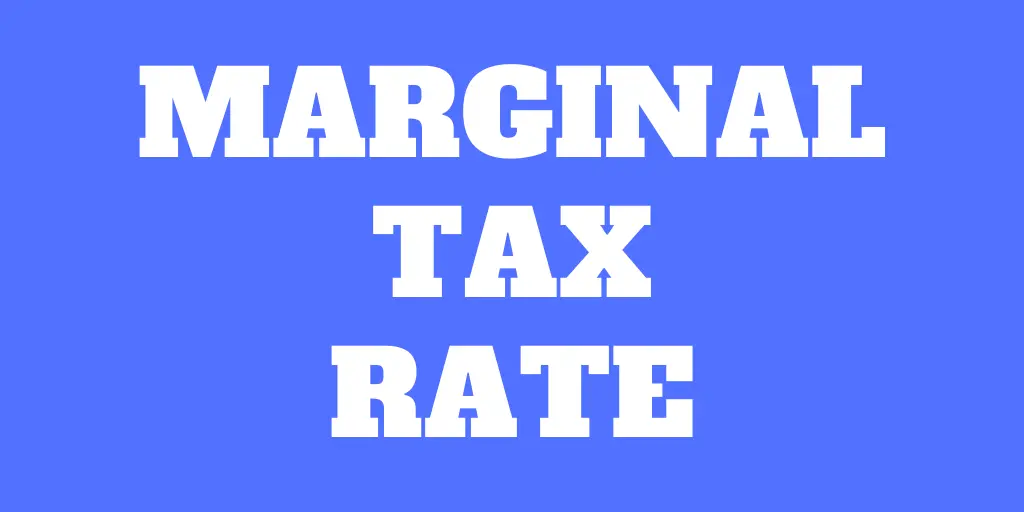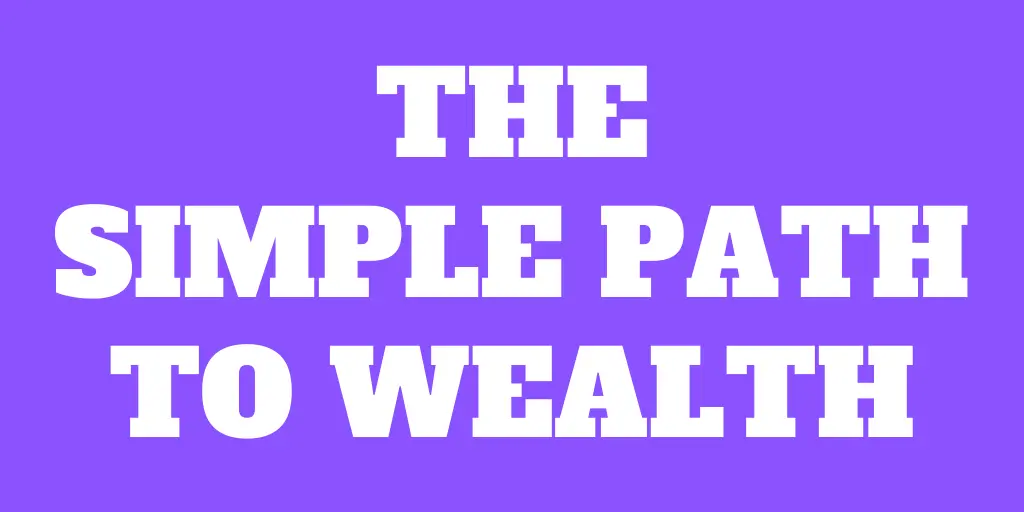(Disclosure: Some of the links below may be affiliate links) We all want to pay lower taxes! When you fill your tax declaration in Switzerland, it is important to take advantage of all possible tax deductions. Tax deductions allow you to reduce your taxable income. Since your taxable income will directly drive the amount of taxes you are going to pay, it is essential to reduce it when possible. So, in this article, I want to go into detail about all the possible tax deductions that exist in Switzerland. Hopefully, you will be able to find tax deductions that you did not use before and will be able to reduce your taxes. I will try to stay generic since many of these tax deductions will be different from canton to canton. The maximums and minimums for each tax
Topics:
Mr. The Poor Swiss considers the following as important: 9) Personal Investment, 9) The Poor Swiss, Featured, newsletter, Switzerland
This could be interesting, too:
RIA Team writes The Importance of Emergency Funds in Retirement Planning
Nachrichten Ticker - www.finanzen.ch writes Gesetzesvorschlag in Arizona: Wird Bitcoin bald zur Staatsreserve?
Nachrichten Ticker - www.finanzen.ch writes So bewegen sich Bitcoin & Co. heute
Nachrichten Ticker - www.finanzen.ch writes Aktueller Marktbericht zu Bitcoin & Co.
(Disclosure: Some of the links below may be affiliate links)
We all want to pay lower taxes! When you fill your tax declaration in Switzerland, it is important to take advantage of all possible tax deductions. Tax deductions allow you to reduce your taxable income. Since your taxable income will directly drive the amount of taxes you are going to pay, it is essential to reduce it when possible.
So, in this article, I want to go into detail about all the possible tax deductions that exist in Switzerland. Hopefully, you will be able to find tax deductions that you did not use before and will be able to reduce your taxes.
I will try to stay generic since many of these tax deductions will be different from canton to canton. The maximums and minimums for each tax deduction will likely change a lot. And the deductions may be different at the federal and the canton levels since both have different maximum deductions.
Commute Expenses
A tax deduction that almost everybody can claim is related to the expenses for your commute to work. If you need to pay something to go to work, you can deduct these expenses from your income.
First, if you are going to work by car, you can deduct the kilometers from your home to your work. If you work full-time, you can deduct a maximum of 220 times the round trip from your home to your work. You also need to justify using a car, but generally, it is not difficult to justify it. For instance, in my case, there is barely any public transportation where I live.
If you go to work by public transportation, you can also deduct your public transportation subscription price.
Finally, you can also deduct a flat rate for your bike if you bike to work. Interestingly, most cantons will accept to deduct both public transportation and bikes if you do both.
Each canton will have a different maximum for this deduction. But this is an important deduction since it can easily account for several thousand Swiss francs removed from your taxable income.
Meal Expenses
If you cannot go home for lunch, you can also deduct your meal expenses. In some cases, you will also be able to deduct your dinner expenses if you cannot even go home for dinner, but you will have to justify it.
In general, you will be able to deduct 15 CHF per meal taken outside of your home. If you have access to a discounted canteen or if your employer is contributing to your meals, you will only be able to deduct 7.50 CHF per meal.
Once again, there will be a maximum at the federal and canton levels for this deduction. But it is an important deduction since it can be substantial (especially if your company does not have discounted canteen).
Nights on the place of work
If your job forces you to spend nights outside of your place of residence, you will be able to deduct your accommodation expenses in your place of work. You will also be able to deduct transportation from your place of residence to your place of work twice a week. In that case, do not forget to claim tax deductions for both meals during the day!
Work-Related expenses
You can also deduct other work-related expenses. For instance:
- Work clothing
- Books
- Hardware and software
- Courses
In general, you can apply for a 3% flat tax deduction from your net income. However, there is a maximum of 4000 CHF per year. If you have higher costs, you can also deduct the effective costs with all the necessary justifications.
If you have to drive at work in your personal car, you will also be entitled to a tax deduction based on the number of kilometers you drive.
Professional Development
If you take significant training to improve your professional career, you can also use it as a tax deduction. If you do a reorientation course to change jobs, this can also be deducted here.
You will have to justify these expenses, and you will have to pay for them yourself. You cannot deduct it if your company pays for it like it is usually the case.
In some cantons, you will be able to deduct some training without justifications. It is the case in Zurich, but there are probably some other cantons that allow you to do that.
Home Office expenses
Currently, when we are forced to work from home, the situation is really confused. Each canton has announced different sets of rules for home office tax deductions. If you are forced to work at home in most cantons, you can still deduce the same deductions as before.
But in general, if you are working from home, there are a few things you can deduce:
- You can deduce the cost of the equipment you use to work at home if your employer does not provide it.
- You can deduce the rent price of a room if you are using it solely for home office.
If you are still deducing the same in-office work deductions as before during COVID-19, you will not be able to claim home-office deductions. You will have to choose.
We can expect the rules to change after the COVID-19 situation.
Third Pillar Contributions
The best tax deduction is probably to contribute to your third pillar. Each year, you can contribute up to 6883 CHF per employed person in your household. So, if you have two employed people in your household, you should contribute to both, if you can.
This 6883 CHF per year is removed from your taxable income. This makes a very significant difference to your taxable income. If you are self-employed, you can contribute up to 20% of your net income into the third pillar, up to a maximum of 34’128 CHF.
Now, you should only invest in a good third pillar. And you should invest your third pillar money in the stock market as much as possible. Otherwise, the returns will be very low. If you do not have a third pillar yet, take a look at the best third pillar of Switzerland.
If you invest in a great third pillar, this is almost free money. Most other tax deductions will allow you to deduce the money that you spend. But this tax deduction allows you to deduce the money you invest, which is much better!
Second Pillar Contributions
You can also get a tax deduction for the money you contribute voluntarily to the second pillar. If you make an extra contribution to the second pillar, this contribution is tax-deductible.
How much you can contribute depends on what you contributed before the second pillar. You can ask the second pillar provider to know how much you can contribute. This can be a very significant amount of money (sometimes more than 100’000 CHF). So, you can realize huge tax deductions with this technique.
However, this is only interesting if you have access to a good second pillar with good returns. And unfortunately, this is not the case for most people. For instance, it returns less than 1% on average, which is pitiful in my case.
Also, you need to make sure that you can get a tax deduction. If you have withdrawn money from the second pillar for a house or a startup, your extra contributions will not be tax-deductible until you have repaid what you take out. This is the main reason why we do not invest in our second pillar.
If you want to know more, you can check whether you should contribute to your second pillar or not.
Just like contributions to the third pillar, contributions to the second pillar are almost free money! The issue with the second pillar is that returns, for most people, are pretty bad.
Debt payments
If you have debts and are paying interest payments, you can get a tax deduction from them. For instance, if you have a consumer loan or a mortgage, you can deduct all your interest payments. It is the same for credit card debt, something that not many people know.
On the other hand, you cannot claim interest payments for a leasing since the object (likely a car) does not belong to you during the leasing. This could be why a car loan could be more interesting than a leasing sometimes.
You should also not forget to deduct the value of your debts from your taxable net worth. This can make a large difference in your net worth taxes.
Donations
If you donate to a charitable organization, you can get a tax deduction for the donated amount.
Many non-profit organizations in Switzerland are recognized by the tax office, and you can donate to them to save on taxes. You will have to keep the certificates of donation from the non-profit organization for your tax declaration.
The great thing about this deduction is that the limit is very high. At the federal level, you are allowed to deduce up to 20% of your net income. At the canton level, it will vary from 10% to 20%.
Insurance Premiums
Another good tax deduction is the deduction for insurance premiums.
Since health insurance is mandatory in Switzerland, you are already paying for it. So, it is good that you can deduce a little money from your taxable income for it.
You can deduce your premiums for health and accident insurance. The maximum is 1700 CHF for singles and 3500 CHF for married couples. The issue is that this is much lower than what we are actually paying. But it is already better than nothing!
Medical Expenses
If you have high medical expenses, you may be able to deduct some of them from your taxable income. These medical expenses include:
- Doctors
- Dentist
- Prescribed medications
- Glasses and lenses
- Prescribed care
If you have to pay these from your own pocket (no supplemental insurance or high deductible, or both), you may deduct them from your taxes. However, in most cantons, you can only deduct expenses higher than the minimum of 5% of your net income. So, if your expenses are lower than this minimum, you will not be able to deduct anything. This means that in the immense majority of cases, you cannot deduct anything.
Childcare
Childcare in Switzerland is incredibly expensive. Fortunately, you can deduct childcare expenses from your taxable income.
If your child is less than 14 years old and you have to pay someone to take care of him, you can deduct this. The tax deduction is due for child care facilities or day nurseries).
The maximum tax deduction is 10’100 CHF at the federal level, while it varies highly for each canton. This is an important deduction that you should not forget since it will make a big difference to your taxable income.
Couples
If you are in a couple, there are two different possible tax deductions:
- If your spouse does not work, you can deduct 2600 CHF from your taxable income.
- If your spouse works, you can get a double-earner tax deduction. This is equal to 50% of the lowest of the two incomes, with a minimum of 8100 CHF and a maximum of 13’400 CHF.
Dependents
If you have children or are caring for disabled dependents, you can claim up to 6500 CHF per dependent. At the canton level, this will vary highly from one place to the other.
If you are divorced and pay alimony to your ex-partner, you will be able to deduct these alimony payments from your taxable income.
You can also deduct gifts you have made to a person who needs this money to live in some cases.
Assets management fees
You can deduct the fees for storing your investment assets:
- Custody fees
- Safe deposit box fees
- Fees for your savings accounts
- Negative interest rate fees
In most cantons, you will able to deduct either the effective fees or a flat rate. The flat rate is generally a per thousand value of your net worth. In most cases, the flat rate is higher than the effective costs, so it is better and easier to deduct the flat rate.
House Renovations
If you are doing renovation work on your house (painting, kitchen renovations, heating renovations, …), you may able to get tax deductions. Whether you can deduct it or not depends on the matter of the work:
- If the renovations increase the energy efficiency of the house, you can deduce it from your taxable income. For instance, if you are changing your windows to improve insulation or switching to a heat pump.
- If the renovations increase the house’s value, you will not be able to deduce it from your taxable income. For instance, if you add a winter garden to your home.
- Other renovations that do not increase the value of the house can be deducted.
If you are planning large work, it may be interesting to spread it over several years if possible. Since tax is progressive, you can save more money over two years than one. But that is only interesting for large expenses.
House Expenses
You can also deduct other house expenses from your taxable income. However, very few of them are tax-deductible, and you will have to check with your canton as to what you can deduct. One example is the building insurance premium that you can deduct in most cantons.
You will add these expenses together with the house renovation costs. And you can choose with either a flat rate or an effective tax deduction. If you do not have any renovation works, you should opt for the flat rate that will likely be higher.
Reduce your property rental value
When you are a homeowner and are living in your home, you will pay taxes on a fake income, the rental value of your home. You are paying taxes as if you were renting it out. This adds to your taxable income. This can significantly increase your taxes.
There is only one way to reduce this property rental value: claim under-utilization of the house. This is possible if you have one room in your house that is not being used. You can claim that you do not use this room and ask for it to be removed from the calculation of the rental value. This can make a significant difference in your rental value and hence taxable income.
Declare your withholding taxes
Finally, if you have paid withholding taxes, you should not forget to declare them. These withholding taxes will count towards the amount of taxes you have already paid. So, they will effectively reduce your taxes that you still have to pay.
You will pay withholding tax on the following gains:
- Dividend payments
- Annuities and pensions
- Lottery gains
Conclusion
As you can see, there are many possible tax deductions from your taxable income. However, there is no magic deduction that you can do. A few of the tax deductions are almost free, such as the third and second pillar contributions. However, many of the deductions only allow you to deduce things you have paid.
So, in general, there is not much you can do to deduce more from your taxes. The most important thing is that you should not forget any tax deductions! You should make sure you are deducting every possible thing you are allowed to.
Swiss taxes may be fair, but they will be the highest item on your budget if you have a significant income. As such, it is important to do everything possible to reduce them to the maximum.
If you want more information, you can read my guide on Switzerland’s taxes or my article on the marginal tax rate.
Do you know any other tax deductions that we can use?
Tags: Featured,newsletter,Switzerland









